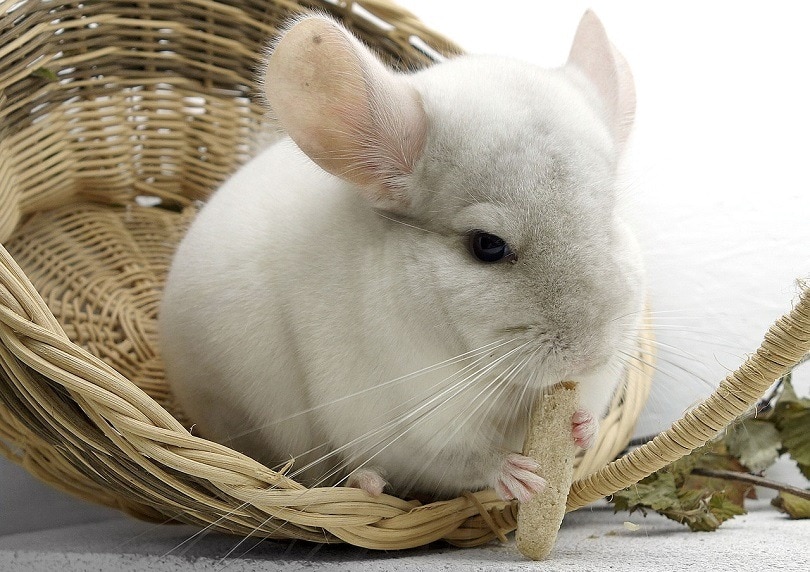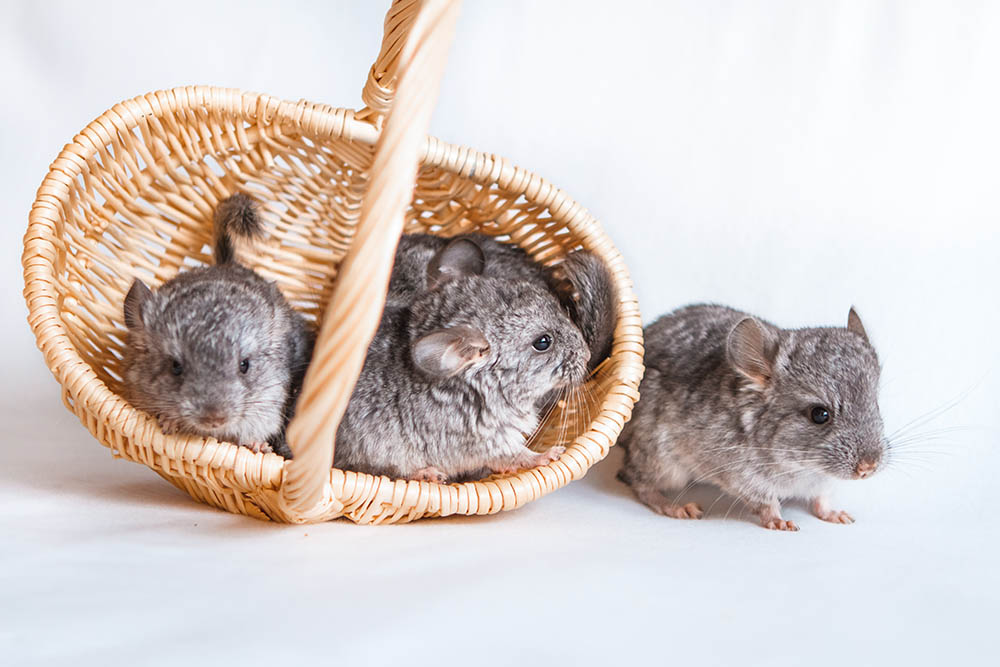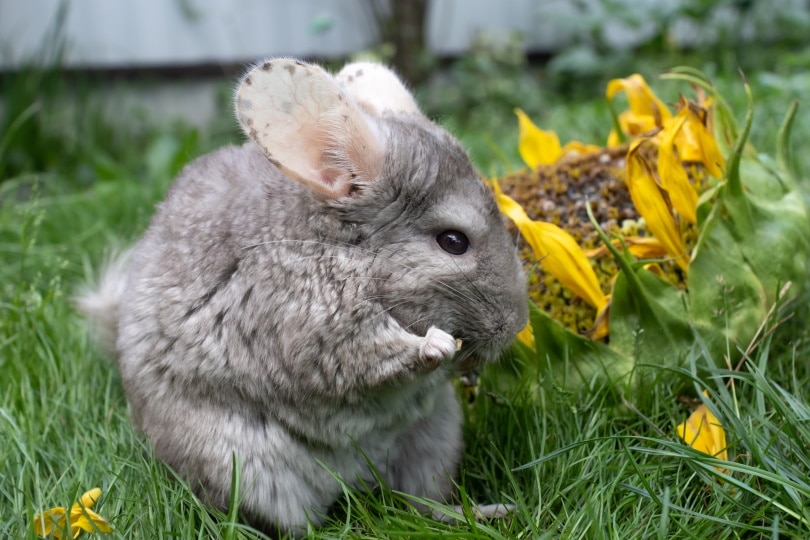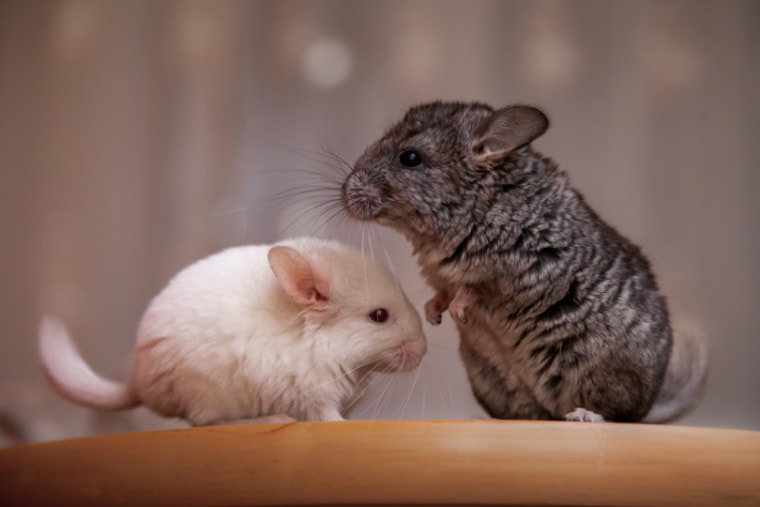
Chinchillas are rodents, and they belong to the same family as mice, rats, squirrels, and other similar creatures. The typical behaviors of rodents are also found in chinchillas, which sufficiently explains why they can be called rodents.
Typically, rodents are rightly identified by their teeth (specifically, their incisors). They have four middle teeth at the front of their mouth. Two of them are found on the upper jaw, and the other two on the lower jaw.
Their incisors are long, and they continue growing throughout their life. These signs are similar to those found on other rodents.
Due to their gentle ways and beautiful, soft fur, chinchillas are incredibly adorable pets. However, before you consider getting these long-lived rodents, it is crucial to find out much more about these active, energetic, and fragile creatures so you can give them all the necessities they require to live their best chinchilla lives.
Are Chinchillas Marsupials?
Chinchillas are not marsupials. Marsupials are the creatures that have a pouch for carrying their younger ones. Chinchillas don’t carry a pouch for their younger ones. Marsupials have the pouch to carry the young ones as the babies are quite undeveloped and require support.
Chinchillas don’t have the pouch that can help them carry around their younger ones. They are not even closely related to the marsupials. Rodents and marsupials belong to the mammal class, but there are significant differences between the two in terms of their taxonomic order, family, genus, and species.
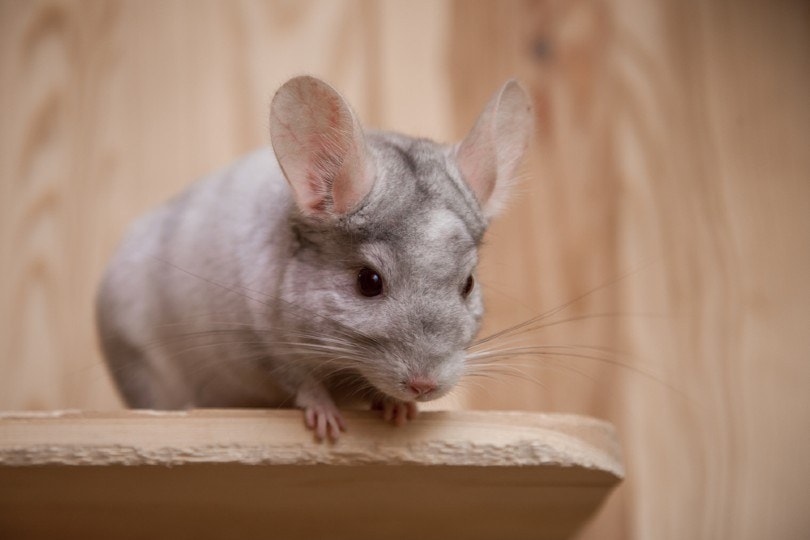
What Are Chinchillas Related To?
Chinchillas are related to guinea pigs and porcupines. With short front legs, which they use to hold food as they sit upright, and long, energetic hind legs, chinchillas appear like mini-eared rabbits or a miniature kangaroo.
Today, there are two existing chinchilla species. These include the short-tailed chinchilla (Chinchilla chinchilla) and the long-tailed chinchilla (Chinchilla lanigera). The short-tailed has shorter eyes and tail and a thick neck and shoulders. Conversely, the long-tailed chinchilla possesses a thinner body build, matched with a long tail and ears.
All chinchillas feature a smooth, dense fur coat that can appear in various colors, including white, brown, or black. These little animals have bushy tails and huge, black eyes. The chinchilla’s fur is around 1.5 inches long, with white, black, and gray stripes. They have the densest fur of all land-dwelling mammals.
Chinchillas have only four-pawed toes on each foot. These tiny creatures are typically 9 to 15 inches long, with their tail adding another 3 to 6 inches to their total body length. Their average weight ranges between 14 to 21 ounces (approximately 400 to 600 grams).
These tiny animals are fast-moving and can jump over a 6-foot crack.
Considerations for Chinchillas
Like their wild counterparts, chinchilla pets are highly athletic and love showing acrobatic dexterity through impressive bounds and jumps. So, it is crucial to provide them with a tall, multi-level cage that offers ample space for jumping, climbing, and exploring. The more room they have, both vertically and horizontally, the happier your chin will be.
Look for a well-ventilated room in your house to place your chinchilla’s cage. Not surprisingly, chinchillas can quickly overheat with all that fur, so their cage must be placed in a low-humidity, temperature-regulated room. Chinchillas generally don’t get along well when caged together and should be kept in separate cages.
If your house is very active or noisy during the day (when most chinchillas prefer to sleep), you should place the cage in a quiet area, away from the commotions, to avoid unnecessary stress.

Enriching Your Chinchilla’s Environment
No matter how big a chinchilla’s cage might be, living within the exact four boundaries, day-by-day may cause boredom and stress to these active creatures. It is essential to allow your chinchillas ample time outside of their cage each day to run, play, and explore in a secure space. Besides the benefits of better overall health and ample playtime, giving plenty of time outside their cage is a perfect way to enhance the human-animal bond.
In addition to ample playtime, provide your chinchilla with various enrichment items to help satisfy their natural habits of playing, hiding, chewing, and exploring. You can simply switch out hides, rearrange the levels of their cage, or add some alluring new chew toys. This can ensure your furry friend remains mentally fit.
These rodents give themselves a dust bath to stay tidy. It is vital that your chinchilla takes dust baths once or twice a week. You can opt for commercial dust baths, or mixtures of silver sand and Fuller’s earth (9:1 ratio). Ensure their bath is 2 to 4 inches deep.
The 3 Facts About Chinchillas
Here are three fun facts about chinchillas, especially for those considering making a chinchilla their next family pet.

1. Chinchillas Are Expert Jumpers and Climbers
A chinchilla can jump almost 6 feet, so it is always advisable to use a proper chinchilla cage to enhance adequate jumping and climbing inside their habitats.
2. Chinchillas Are Intelligent and Friendly
Chinchillas are pretty intelligent creatures. They adapt to behaviors and routines quickly. In addition, they respond to specific training and start to recognize their own name. Potty training to urinate on a litter box is also a possibility with a chinchilla. Chinchillas can be incredibly loving and friendly towards their owners. If you are planning to get a close-bond family companion, chinchillas are a pet worth considering.
3. Chinchillas Have a Long Lifespan
Compared to other rodents, chinchillas have an incredibly long lifespan. When you give them proper care, they can live nearly 15 to 20 years. If you are looking for a furry friend that can last almost two decades, a chinchilla might be a perfect pet for you.
Final Thoughts
Whether you are a seasoned pro, a new chinchilla owner, or aspiring to adopt your first pair, it is easy to see how these adorable, intelligent, and active creatures are worth adding to your family pets. Although chinchillas come with a few unique notions and species requirements, their charming personalities and crazy antics will give you joy and meaningful friendship for many years if you care for them properly.
Related Reads:
- How Do Chinchillas Bathe in the Wild? Everything You Need to Know!
- How High Can Chinchillas Jump? Facts, & FAQ
Featured Image Credit: Luniaka Maria, Shutterstock


